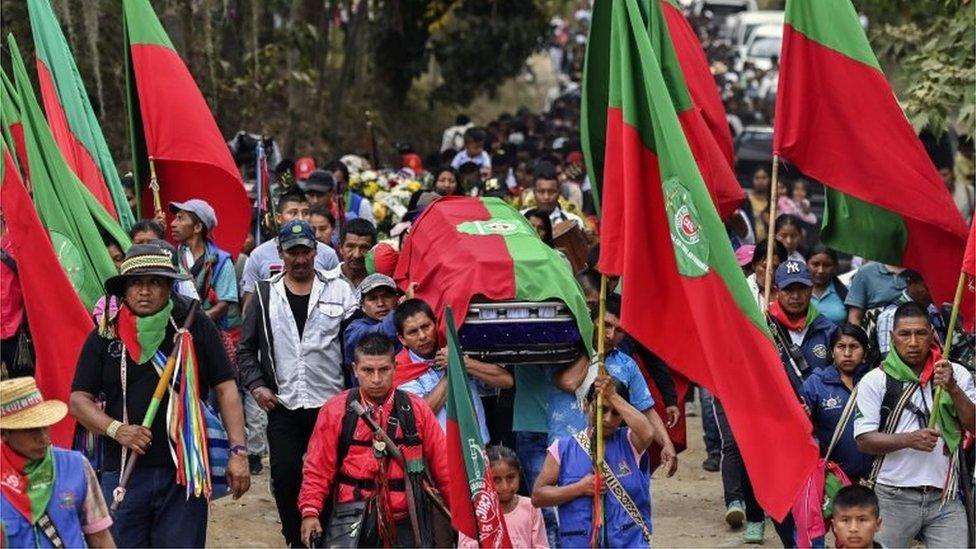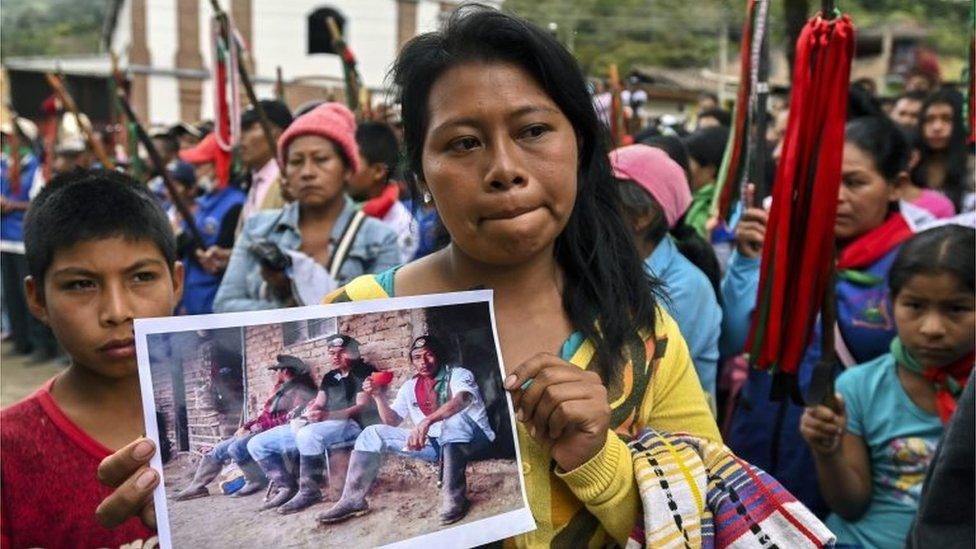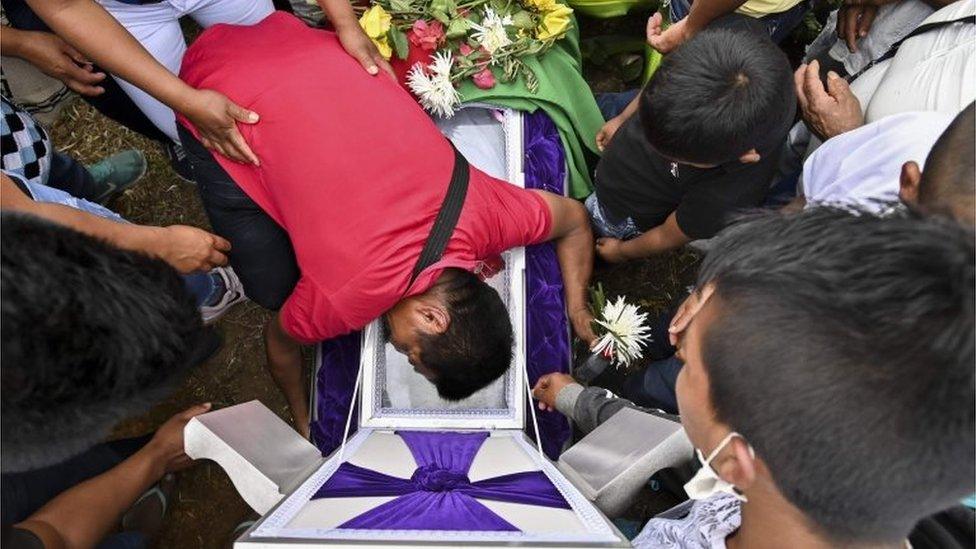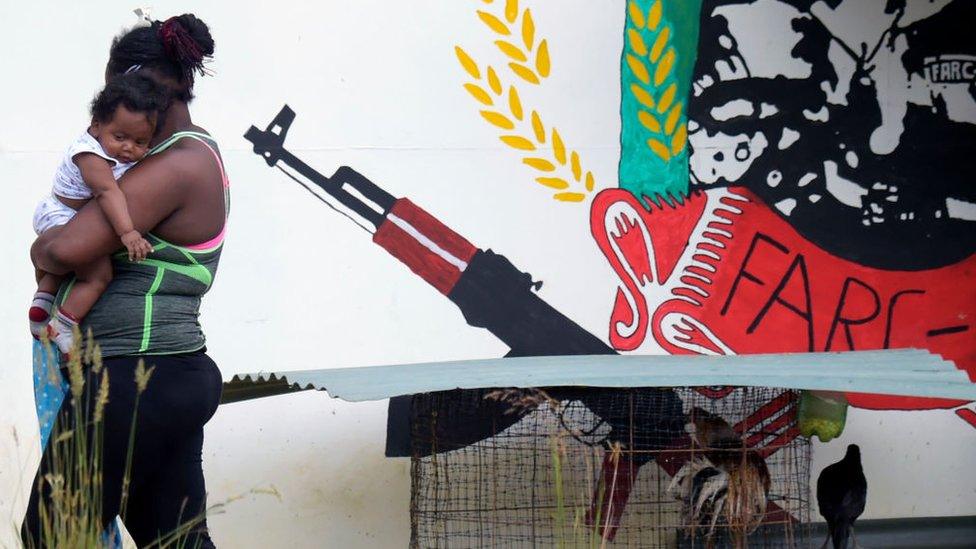Colombia murders: Anger as indigenous leaders are buried
- Published
Hundreds of Nasa people turned out to bid farewell to the killed men
Members of the indigenous Nasa group in Colombia have laid to rest two of their members who were killed on Saturday.
The two were shot dead when gunmen opened fire on the bus they were travelling in to a local fair.
They were the latest indigenous activists to be targeted among a resurgence of violence by dissident rebel groups and paramilitaries.
Thirty-six members of the Nasa group have been killed so far this year, a steep rise from previous years.
The two men killed belonged to the Nasa indigenous guard, a volunteer group tasked with protecting the ethnic group.
Membership is voluntary and unpaid and the Nasa say it resembles less a police force and is more a group of mediators.

Members of the indigenous guard are not armed but carry a staff adorned with the red and green colours of the Nasa group.
A group of them were travelling by bus from the town of Caloto to Toribío in south-western Colombia to attend a coffee fair when they came under fire.
Kevin Mestizo, 23, and Eugenio Tenorio, 46, were killed and five other people, including a seven-year-old boy, were injured in the attack.

Kevin Mestizo (centre of the photo) and Eugenio Tenorio were members of the indigenous guard
Colombian Interior Minister Nancy Gutierrez said a dissident group of the Revolutionary Armed Forces of Colombia (Farc) was behind the attack.
The Farc rebel group signed a peace agreement with the government in 2016 and ordered its fighters to lay down arms.
Not all the Farc rebels agreed with their leadership's strategy though and some broke away to continue fighting the state and engaging in criminal activities, such as drug trafficking and extortion.
Colombian military intelligence reports estimate the dissidents to number between 1,750 and 3,000.
As the dissident rebels try to expand the territory they control they increasingly clash with the indigenous guard protecting it.

The Nasa fear there will be more attacks after threats of a "social cleansing"
The National Indigenous Organisation of Colombia (Onic) says that they have received reports of 57 attacks on indigenous groups between 1 July and 10 August.
Onic also said that it had received two threatening messages. One claimed to be from the Sinaloa cartel, a powerful international drug cartel based in Mexico which smuggles huge quantities of cocaine from Colombia through Central America to the US and beyond.
The second, from another group calling itself "district twelve", threatened to carry out "social cleansing" in indigenous villages in south-western Cauca province.
Locals have also reported finding leaflets warning them not to interfere with the drugs trade.
The United Nations has urged the Colombian government to do more to protect its indigenous people.
- Published19 June 2019
